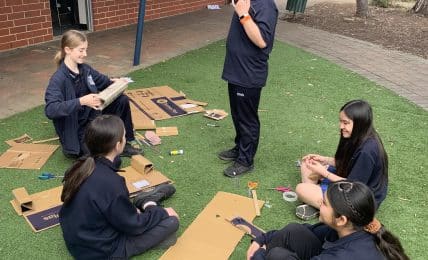A lesson in Intercultural Understanding
At Our Woodville, our school motto is to Reach for the Stars, and our four houses are named after stars and planets. Many cultures have studied the night sky and used the stars as parts of religious practices and ceremonies. Stars have been used for celestial navigation and orientation, and to mark the passage of seasons, and to define calendars. Many of these cultures and religions are represented by the diverse array of students from over 80 different cultural groups at Our Woodville.
For Aboriginal and Torres Strait Islander peoples The Night Sky is both a map and guide to navigation, seasons and cultural practice. The story that plays out in the stars directs the actions below.
Stars do not arrange themselves in patterns and constellations, we do that as humans. We create a shape, narrative, and vision. Stars shape our own ongoing narrative and culture creating meaning in the night sky above us that guides us in our life on the ground below. We don’t all see exactly the same night sky. There are subtle differences, depending on where we are on the planet, what season it is and the time of night, all of which are imbued into the meaning we construct about the stars.
During our week 5 Thrive lesson, students were given the chance to work together to research their culture’s and/or cultures’ knowledge and stories of the stars. Students answered questions on the following topics: stories / legends of the stars, religious / spiritual significance of the stars, famous star symbols used in artworks and songs about the stars. Students were also asked to list the different names used for the stars in their culture, including the names they use for Jupiter, Mercury, Neptune and Sirius – our four houses.

In total, we received hundreds of responses from all the cultures represented at Our Woodville. These responses are now being collated to create a database of knowledge regarding other cultures and the stars. Part of Our Woodville’s endeavour is to make sure that all student voices are heard and valued.


